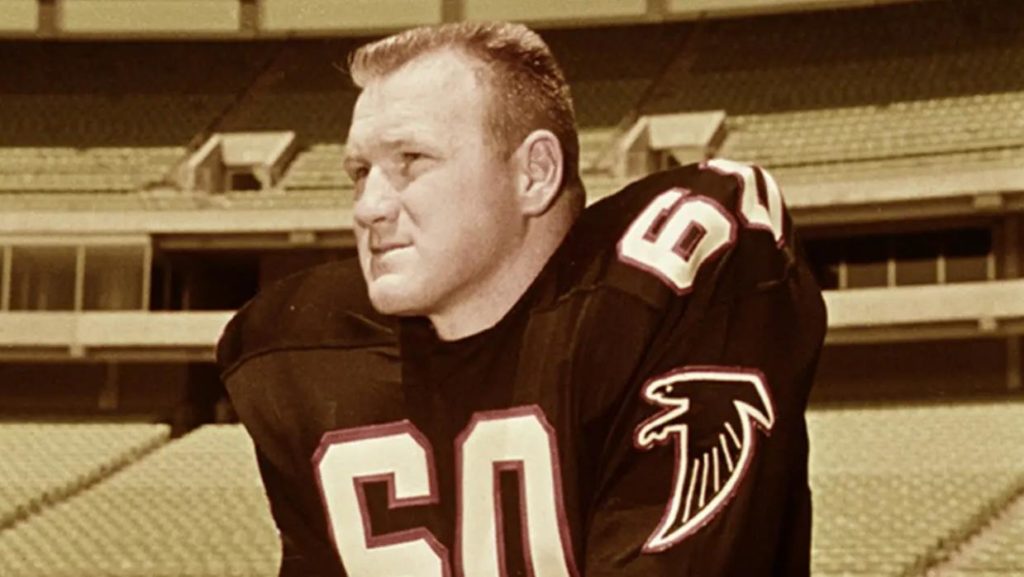News
Tommy “Mr. Falcon” Nobis had worst possible form of CTE when he died

Image Source: AtlantaFalcons.com
Football was one of the few constants for Tommy “Mr. Falcon” Nobis. Even after he retired as a linebacker for the Atlanta Falcons, he quickly assumed a position as the manager of the team’s training camp hotel. From there he would rise through the ranks to eventually become vice president of the franchise.
The other two constants in his life were his family and his gradually increasing instability.
“Growing up, I remember my mom having to call his secretary when he was going out to training camp to let them know what kind of mood he was in. And then vice versa,” his daughter, Devon Jackoniski, said in a recent interview with The Associated Press.
“We were pretty uneasy growing up,” she said. “Although my dad had just some beautiful moments of being a wonderful man, emotionally he was so unstable it was just hard to get close to him.”
Now, experts from Boston University’s CTE center have confirmed what his family had suspected for years. By the time of his death, he had developed the most severe form of chronic traumatic encephalopathy.
Chronic traumatic encephalopathy is the permanent degenerative brain disease believed to be caused by repeated head trauma and impacts and has been tied to mood swings, behavioral problems, memory issues, and motor function complications.
While Nobis never went to the playoffs – let alone the Super Bowl – in his 11 seasons with the Falcons, he was repeatedly selected for the Pro Bowl. He would also become beloved by the city for helping cement the brand new Atlanta Falcons franchise.
Sadly, by the time the Falcons finally made the Super Bowl in 1999, he was reportedly unable to understand due to his CTE symptoms.
In a statement, Dr. Ann McKee said that Nobis had the most severe form of CTE currently identified, with a “severe loss of neurons and large CTE lesions throughout the cerebral cortex.”
While the family had been suspecting CTE for some time, Jackoniski says they were still surprised by the severity.
“We knew there was going to be something wrong on his pathology report. But, it was shocking how a human being could still be alive with that little functioning brain.”
Nobis’s legacy has always been bittersweet to his family and Jackoniski says she is still trying to reconcile the good and bad effects it has had on her life.
“Football was my father’s life, the air he breathed and therefore the air we breathed,” she said. “It brought discipline and recklessness, self-worth and depression, strength and weakness, determination and fear, teamwork and destruction of relationships, competition and dissension, friendships and loneliness, strategy and brutal honesty, entertainment and subsistence.
“In the end,” she said, “it brought humility in every sense of the word.”



